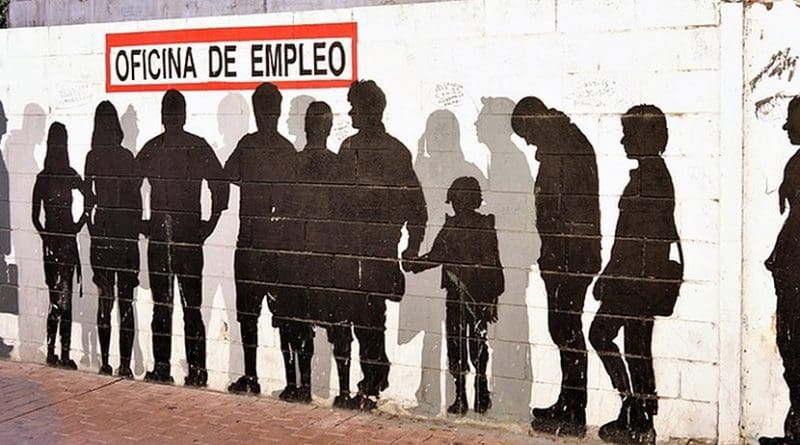Spain Extends Temporary Lay-Off Plans And Support For Independent Contractors
Spain’s Council of Ministers approved a Royal Decree-Law on social measures to defend jobs whereby the Temporary Lay-off Plans (Spanish acronym: ERTEs) are extended until January 31, 2021, after reaching an agreement to this end with the social stakeholders.
The Minister for Work and Social Economy, Yolanda Díaz, explained that the calculation base for these benefits will be maintained at 70% of the regulatory base for the worker, who will not see their income drop to 50% of the regulatory base until six months have elapsed, as has happened to date.
Existing features will be maintained, such as those companies that have signed up to an ERTE not being allowed to offer overtime, outsource their activity or directly or indirectly hire new staff, except for training motives or on other objective and justified grounds. The ban on dismissals will also remain in force.
By way of new features, the so-called “ERTEs on grounds of constraint” and “ERTEs on grounds of limitations” have been created. The first is aimed at companies that cannot carry on their activity as a result of the new restrictions or measures adopted, both by national and foreign authorities, as from 1 October 2020. “For example, those companies engaged in night-time leisure activities”, stated Yolanda Díaz.
These companies will be entitled to an exemption from their national insurance contributions during the period of their closure and until 31 January 2021, which will amount to 100% of the business contribution during the period of their closure and until 31 January if they have fewer than 50 workers and to 90% if they have 50 workers or more.
“ERTEs on grounds of limitations” refer to those companies that see the development of their activity limited at some of their work centres as a result of the decisions or measures adopted by Spanish authorities, which may request this from the labour authorities. In this case, the exemption from their national insurance contributions for workers temporarily laid off will gradually decrease between the months of October 2020 and January 2021.
Yolanda Díaz announced that those people affected by an ERTE will have preferential treatment to receive training courses, and specific actions may be introduced for this group “so that they can take advantage of this delicate time to improve their training with a view to their future”.
Protection for permanent seasonal and part-time workers
Those workers with a permanent seasonal contract or that undertake permanent and periodical work that is repeated at certain dates and who are affected by an ERTE during the theoretical period of activity may receive an extraordinary unemployment benefit. Beneficiaries may also include those workers not previously affected by an ERTE but who have seen their benefits or subsidies expire that they would have been entitled to had they applied for them.
Workers on part-time contracts may also see improvements in their unemployment protection.
Independent contractors
The subsidies for independent contractors will be extended until 31 January 2021, specifically those benefits for cessation of activity and for seasonal independent contractors.
A new extraordinary benefit for the suspension of activity will be aimed at those independent contractors whose whole activity has been temporarily suspended as a result of a resolution issued by the competent administrative authorities to contain the COVID-19 pandemic.
These benefits will begin to accrue with effects from 1 October 2020 and have a maximum duration of four months, provided that the application is presented within the first 15 calendar days of October. Should this not be the case, the effects will be established as from the first day of the month following the presentation of the application.
Minimum Living Income
The legislation regulating the Minimum Living Income (Spanish acronym: IMV) has been “adjusted” again, explained the Minister for Inclusion, Social Security and Migration, José Luis Escrivá, following the amendments approved at the latest Council of Ministers. “These are technical, but very important, aspects that will allow us to proceed with the processing and resolution of many cases”, he claimed.
To date, 900,000 applications have been made, of which 410,000 have already been processed, “which means that more than 90,000 households and almost 300,000 people are now receiving this benefit”, he said. The aim is to reach 180,000 beneficiary households and that around 70% of all the current cases, “which will probably stand at around 1 million by the end of October”, will be subject to processing by that date.
The concept of Coexistence Unit has been modified to include those people who, without family or similar ties, share the same dwelling with a Coexistence Unit made up of people who do have ties. In these cases, the existence of two Coexistence Units will be considered to exist.
Furthermore, if through a contract the individual use by a single person or by a Coexistence Unit of a room in a hotel or similar establishment can be accredited, this will be considered to be their primary residence for the purposes provided for in this legislation.
Similarly the concept of single-parent dwelling will be clarified and the requirement for three years of independent living will be limited to those under the age of 30 (one year for those over the age of 30) and the requirement for one year of national insurance contributions will be established.

